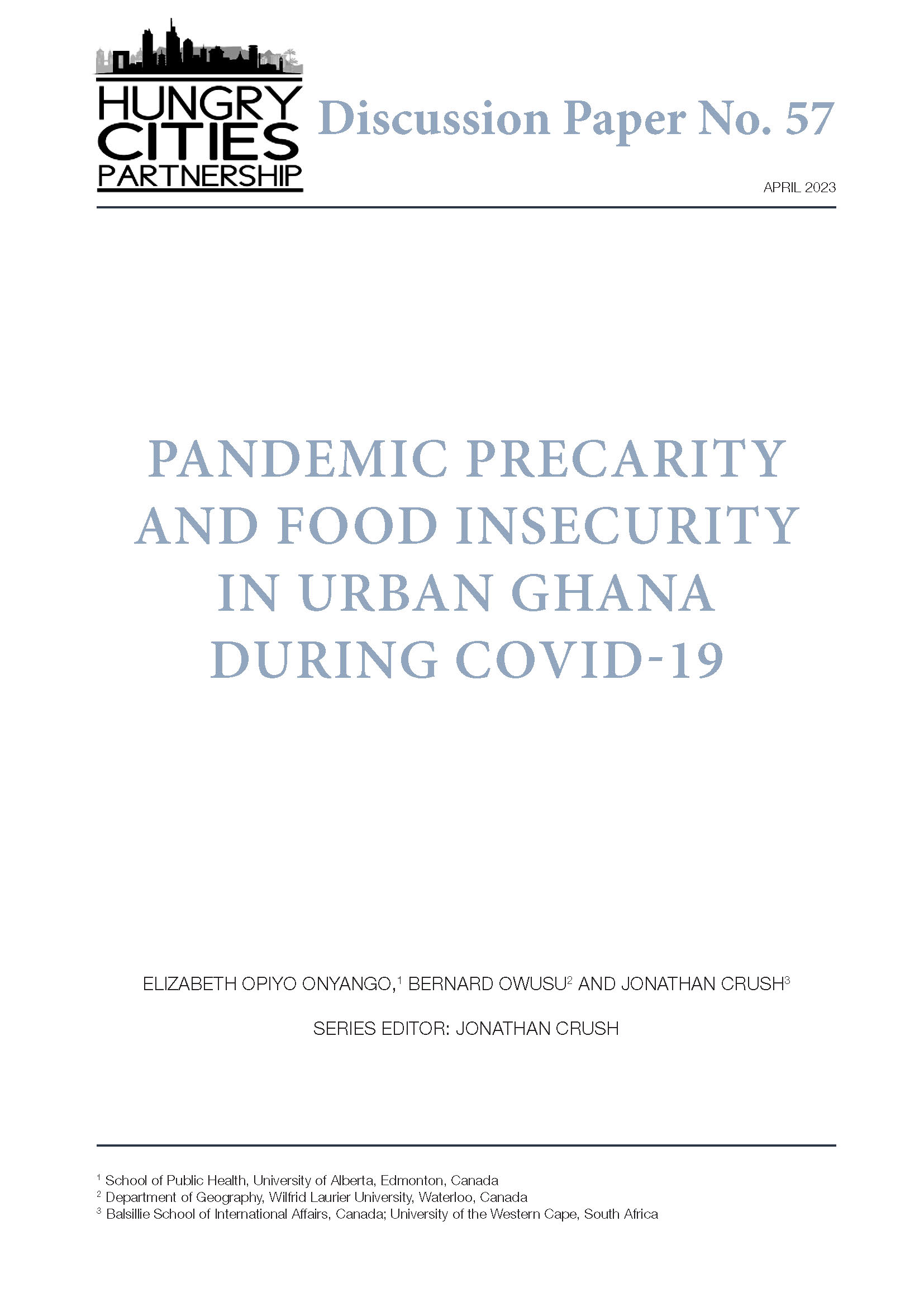The impact of the COVID-19 pandemic on urban households in the Global South has not yet been adequately explored, despite an emerging consensus that impacts of the pandemic were more severe in urban than rural Africa. This paper addresses the knowledge gap by examining the relationship between pandemic precarity and food insecurity in Ghana’s urban areas during the pandemic in 2020. The data comes from the World Bank (WB) and Ghana Statistical Service (GSS) COVID-19 High-Frequency Phone Survey. Using a sub-sample of 1,423 urban households, the paper evaluates household experiences of the pandemic. Our findings show that household demographic characteristics are not a major predictor of food insecurity. Economic factors, especially the impact of the pandemic on wage income and total household income, were far more important, with those most affected being most food insecure. Additionally, food-insecure households were most aware of and were affected by food-price increases during the pandemic. These findings are important in planning the post-pandemic recovery initiatives and in addressing current and future emergencies and shocks to urban food systems.

